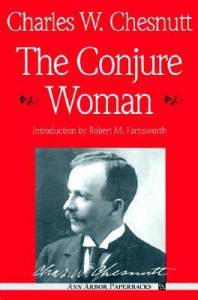Review


What an amazing surprise! Kept me puzzling over the layers of ambiguity found in these tales, apparently comic dialect stories framed in the condescending voice of a white narrator (apparently the white readers of the original didn't always notice how Chesnutt was satirizing this narrator, and nodded right along with him); Uncle Julius, in the stories, has a variety of purposes for his storytelling: the one the narrator notices is a self-interested one (but he is maybe not always right about the self-interested motive he attributes); then there is the appeal to the sympathies of the narrator's wife; then there are subcurrents of connection to the land and the community-building role of magical beliefs and so on... The stories seem to be subversive on so many levels, although Chesnutt's own commentaries on writing them denies much of this subversiveness.










